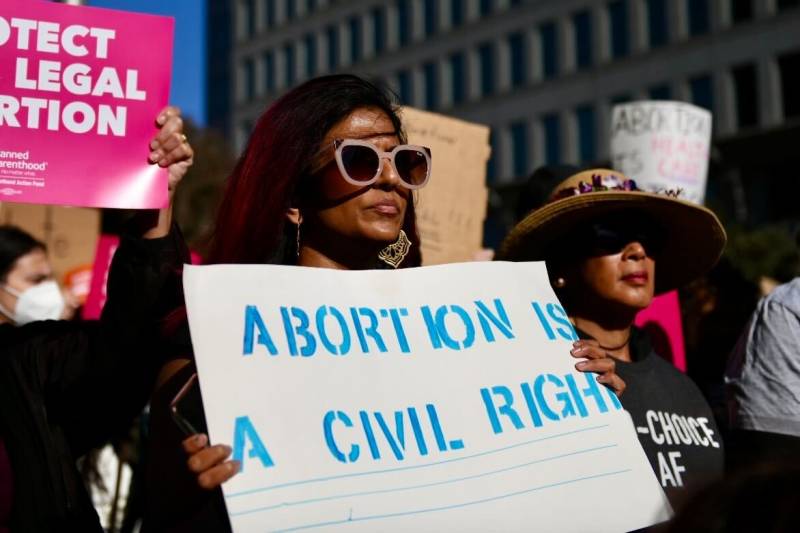If Roe v. Wade is overturned, those who live in states where abortions are likely to become illegal (according to the New York Times, that’s 33.6 million reproductive-age women) will need to travel across state lines in order to reach abortion services. This added expense will disproportionately affect the poor, the working class, and people of color. According to 2021 figures compiled by the Federal Reserve, the average BIPOC household earns about half as much as the average white household, making out-of-state travel far more challenging.
In Our Own Voice is a network of eight organizations in California, Georgia, Louisiana, Ohio, Pennsylvania, Tennessee and Texas that center Black women’s safety and access to reproductive healthcare. It is currently asking for donations and volunteers around the country to work strategically with its partners.
Indigenous Women Rising has a dedicated abortion fund to assist every Indigenous person in America and Canada that wants one.
Also facing more accessibility challenges than most are pregnant teens. The National Abortion Federation operates a hotline specifically to assist them. By texting TEEN to 839863 or calling 1-800-852-8336, teenagers can seek out reproductive health care and advice.
Take Action
Call lawmakers and vote whenever you have the opportunity to do so. In 2020, the California Coalition for Reproductive Freedom collected eight different voter guides for that year’s elections, focusing on the candidates who were most likely to safeguard reproductive healthcare. You can keep your eye on the resources section of their website for guidance on upcoming elections.
If you’re looking for a protest to join, We Won’t Go Back offers a guide to upcoming marches, rallies and online meetings in your zip code. To get news about upcoming protests direct to your inbox, you can also join the Women’s March mailing list. (If you are unsure of your rights as a protester, you can consult this guide from the ACLU.)
Know That Abortion Isn’t ‘Just’ a Women’s Issue
Though cisgender women will be most affected if Roe v. Wade is overturned, abortion bans have far-reaching consequences for everyone, including the loved ones of those seeking abortions. Transgender men and nonbinary folks get abortions too—around 500 of them in 2017 alone.
Pregnancy is significantly more dangerous than legal abortion. Between 2013 and 2018, 0.4 people per 100,000 died because of an abortion procedure. That’s compared to 18.2 Latinx people, 19.1 white people and 55.3 Black people per 100,000 who died while attempting to complete a pregnancy.
Death rates caused by illegal pre-Roe v. Wade abortion procedures are unclear. But in 2019, Washington Post fact-checkers reported that in the 1960s, the annual number of women who died from an illegal abortion was officially under 300. The paper ultimately estimated that the actual number was realistically higher than 300 but lower than 1,000.
Talk About It
Openly talking about how abortion has affected your own life can help to de-stigmatize and humanize the issue for others. In 2017, a study showed that nearly one in four American women have an abortion by age 45. If you are in a position to share your story, please consider doing so.
Abortion Out Loud has published 1,500 abortion stories and is always seeking more. You can share your story here. And Planned Parenthood’s “Our Abortions, Our Stories” project is a powerful collection of quotes compiled with the belief that sharing accounts of abortion makes a difference in the lives of others. You can share your experience here.


